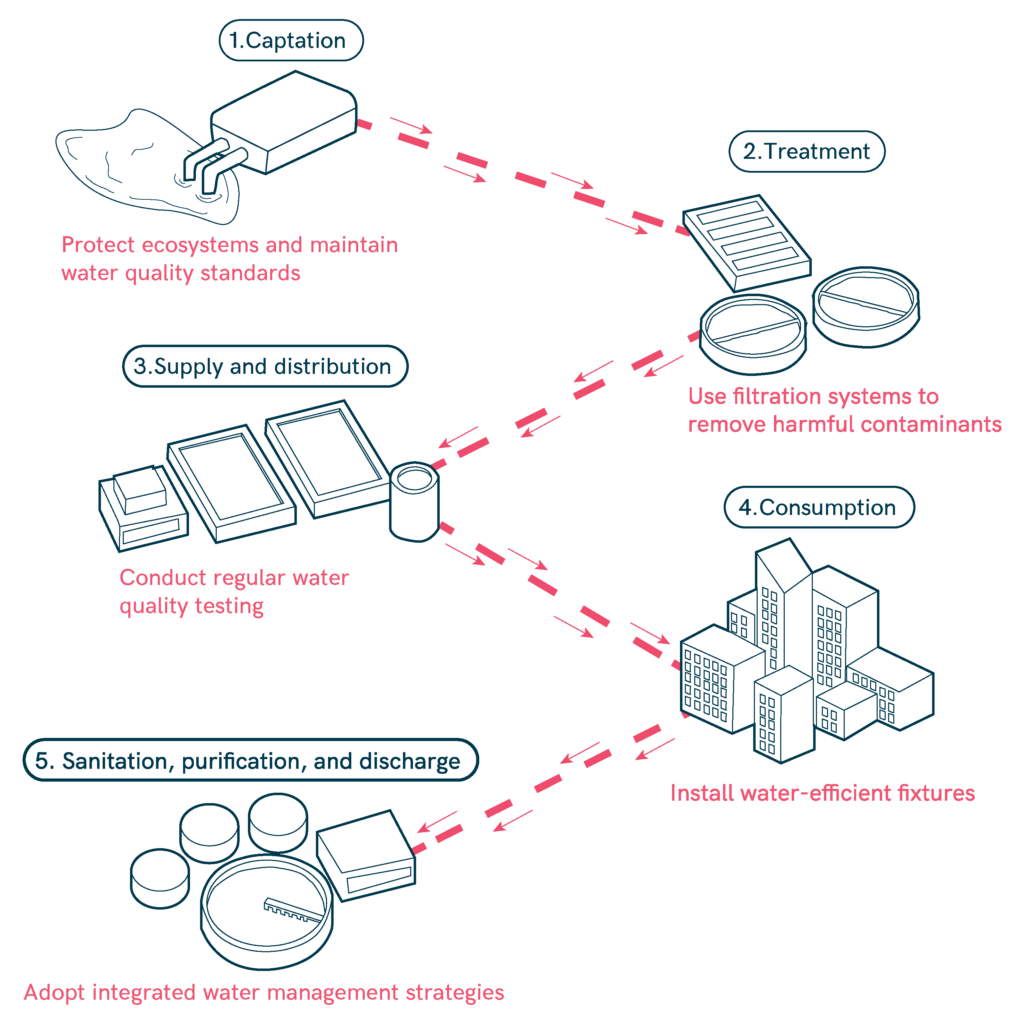Sustainable and Efficient Water Systems
Designing sustainable spaces requires a focus on water quality and efficient use to ensure access to clean, safe water for all. By integrating best practices, systems can be developed that promote health, conserve resources, and reduce costs while supporting environmental sustainability. These measures are essential to foster environments that promote equitable access to water resources in all settings.

- Ensure water management, protect ecosystems, and maintain water quality standards for sustainability.
- Use filtration systems to remove harmful contaminants and meet drinking water quality standards.
- Conduct regular water quality testing to comply with WHO and EU regulations.
- Install water-efficient fixtures to reduce consumption and promote sustainability.
- Implement rainwater harvesting in water-scarce areas to reduce pressure on potable water systems.
- Adopt integrated water management strategies for improved efficiency and water quality protection.
Sources
- https://accessible-eu-centre.ec.europa.eu/content-corner/digital-library/en-172102021-accessibility-and-usability-built-environment-functional-requirements_en
- https://breeam.es/
- https://www.usgbc.org/leed
- https://evalore.es/servicio/certificaciones-medioambientales/
- https://www.codigotecnico.org/pdf/Documentos/SUA/DccSUA.pdf
- https://universaldesign.ie/built-environment/building-for-everyone/building-for-everyone-full-series
- Carers
- Children
- Cognitive
- Cognitive abilities
- Decolonial perspective
- Digital
- Digital barrier
- Enviroment
- Environmental
- Gender and generations
- Gender perspective
- Hearing impairment
- Low-education
- Low-income
- Older people
- Other
- Physical abilities and features
- Sensory and Physical
- Socioeconomic
- Visual impairment